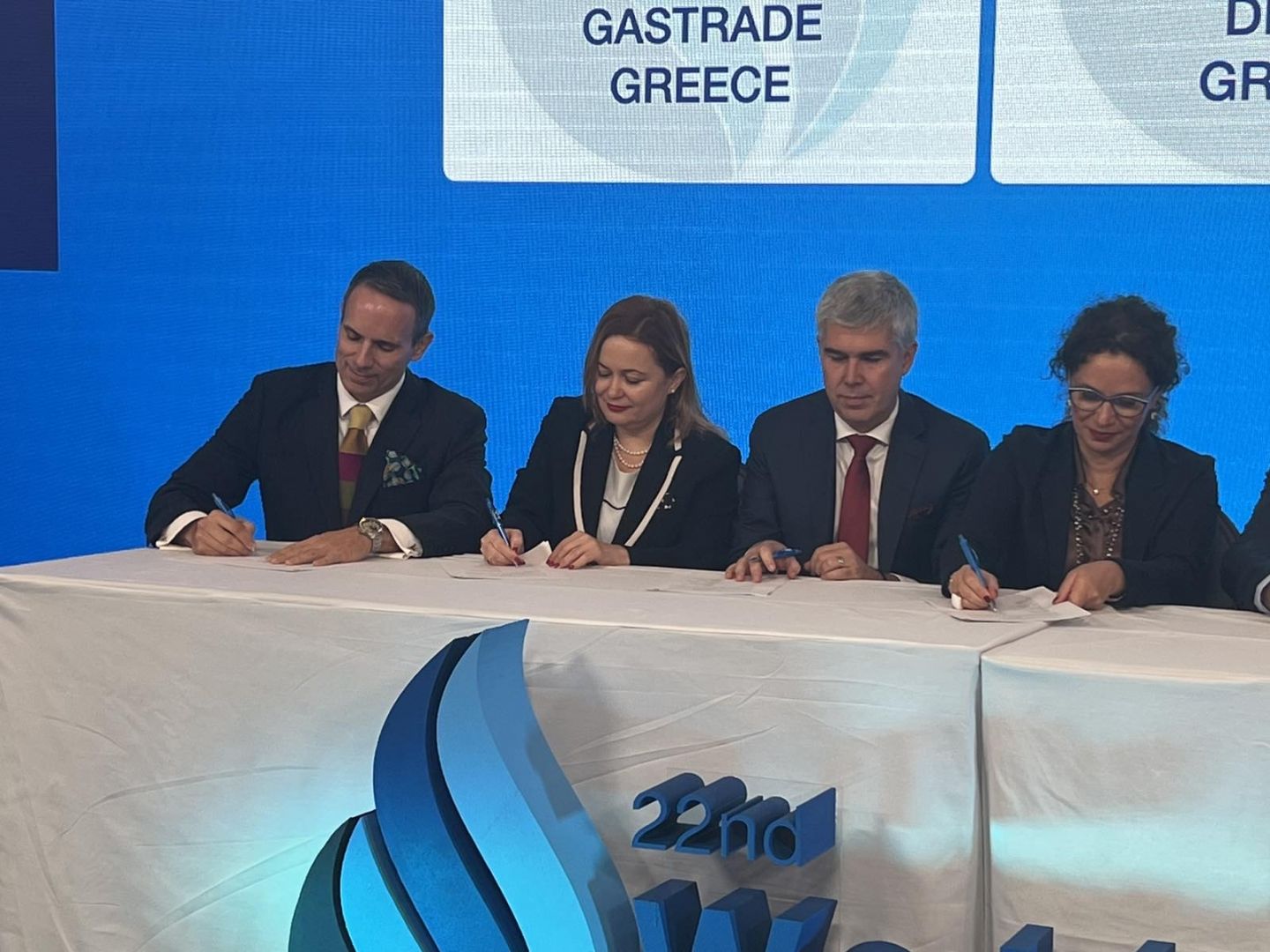ICGB renews its participation in MoU on Vertical Gas Corridor implementation [PHOTO]
![ICGB renews its participation in MoU on Vertical Gas Corridor implementation [PHOTO]](https://www.azernews.az/media/2022/12/01/companies_from_4_countries_are_part_of_the_innitiative.png)
By Ayya Lmahamad
Representatives of ICGB AD (Bulgaria), Bulgartransgaz EAD (Bulgaria), DESFA S.A. (Greece), Gastrade S.A. (Greece), FGSZ LTD (Hungary), and SNTGN TRANSGAZ S.A. (Romania) have signed the renewal of the memorandum of understanding on the implementation of the Vertical Gas Corridor, in Athens, Greece, ICGB AD told Azernews.
The adopted document aims at cooperation between the companies regarding the realization of the Vertical Gas Corridor, which will connect the networks of Bulgaria, Greece, Romania, and Hungary and will allow natural gas transportation.
"The improved connectivity of the transmission systems of the neighboring countries is in sync with the joint European priorities in the energy sector – increasing energy security in the region, market integration through diversification of routes and sources of natural gas, as well as increasing competition," the statement reads.
The Interconnector Greece-Bulgaria, which started commercial operation on October 1, 2022, is a key part of the development of the Vertical Gas Corridor project. The IGB gas pipeline connects the transmission networks of Greece and Bulgaria, providing a direct connection to the Trans-Adriatic Gas Pipeline (TAP) and thus making Bulgaria part of the Southern Gas Corridor.
"The quantities of natural gas transported through the interconnector since the beginning of October provide nearly 1/3 of Bulgaria's domestic consumption in the winter season. The new infrastructure creates opportunities for natural gas transportation to other neighboring countries in the region, as well as to Moldova and Ukraine," the statement reads.
ICGB Executive Officers Teodora Georgieva and George Satlas emphasized the need for close cooperation between the countries of the region to improve energy connectivity and secure more sources of gas supplies.
"In the context of the changed energy and security environment in the region, cooperation on the development and construction of new energy projects to guarantee diversified sources of gas becomes a top priority. We recognize the serious efforts that are being made at the national and European level in terms of improving energy connectivity and achieving energy independence through diversification," they said.
They highlighted the opportunities for the development of the Vertical Gas Corridor after the successful commissioning of the gas interconnector, contributing to energy security and sustainability within the region.
Moreover, they added the role of IGB in this aspect will be even more significant when the total capacity of the pipeline increases.
"Currently, the interconnector has a maximum total capacity of 3 billion cubic meters per year. In coordination with DESFA, we have the opportunity to increase this capacity up to 5 billion cubic meters per year, which should happen in sync with the commissioning of the LNG terminal at the Greek city of Alexandroupolis, expected in 2024," they said.
The IGB gas pipeline is designed to connect the Greek national gas transmission system (DESFA S.A.) and the Trans-Adriatic gas pipeline (TAP AG) in the area of Komotini (Greece), with the Bulgarian gas transmission system (Bulgartransgaz EAD) in the area of Stara Zagora. The total length of the gas pipeline is 182 km, and the diameter of the pipe is 32''.
The pipeline is designed to increase its capacity up to 5 bcm/y depending on market interest and the capacities of neighboring gas transmission systems.
The opening ceremony of the Interconnector Greece-Bulgaria was held in Komotini on July 8, while a ceremony to inaugurate the (IGB) was held in Bulgaria on October 1.
--
Ayya Lmahamad is AzerNews’ staff journalist, follow her on Twitter: @AyyaLmahamad
Follow us on Twitter @AzerNewsAz
Here we are to serve you with news right now. It does not cost much, but worth your attention.
Choose to support open, independent, quality journalism and subscribe on a monthly basis.
By subscribing to our online newspaper, you can have full digital access to all news, analysis, and much more.
You can also follow AzerNEWS on Twitter @AzerNewsAz or Facebook @AzerNewsNewspaper
Thank you!

